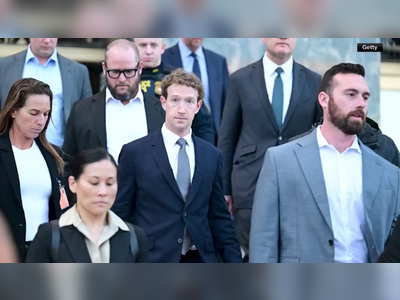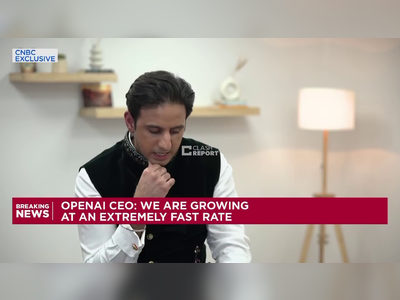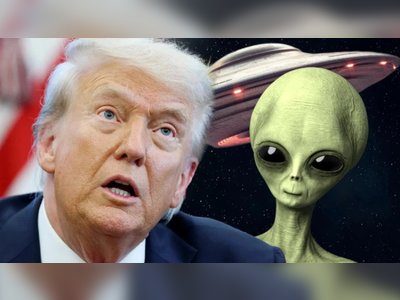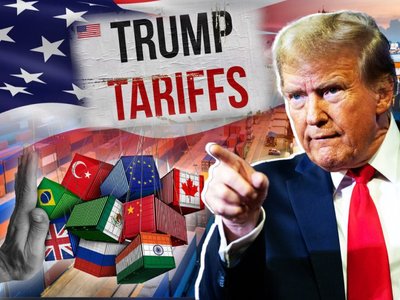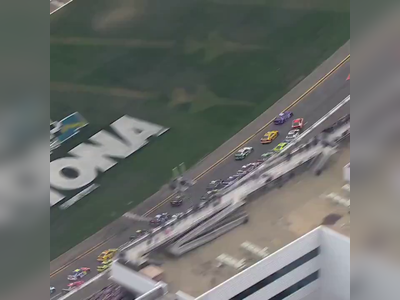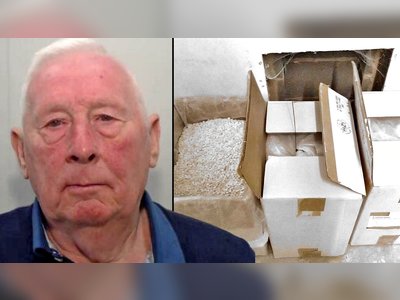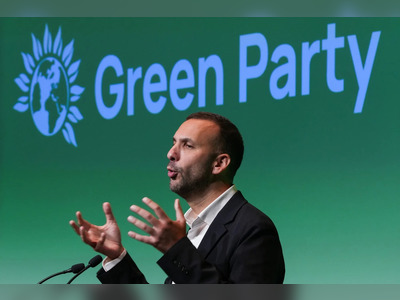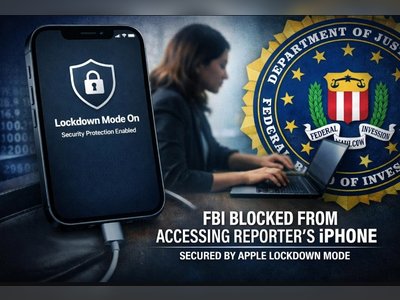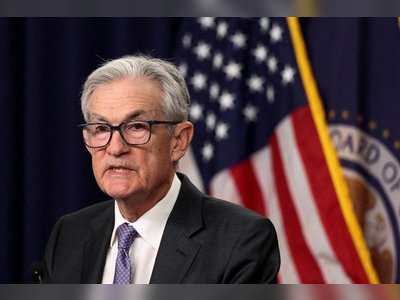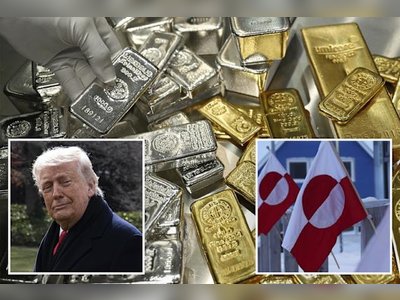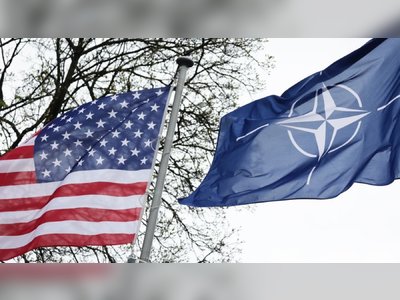
Conclave Begins to Elect New Pope as World Watches Closely
The Vatican's Sistine Chapel has closed its doors as 133 cardinals from 70 countries embark on the conclave to choose the next pope.
The conclave to elect the next pope commenced on Wednesday afternoon at the Vatican, following the death of Jorge Bergoglio.
A record 133 cardinal electors from 70 countries are participating in this highly structured process, which is being closely observed by approximately 1.4 billion Catholics and thousands of journalists worldwide.
After a Mass held in St. Peter's Basilica, the cardinals, dressed in red and white, gathered for a communal prayer in the Pauline Chapel before proceeding in a solemn procession to the nearby Sistine Chapel.
As part of the conclave's tradition, the cardinals placed a hand on the Gospel and took an oath in Latin, promising to maintain secrecy regarding the proceedings under the threat of excommunication.
The Master of Papal Liturgical Celebrations, Monsignor Diego Ravelli, announced 'Extra omnes!' ('Everyone out!') to clear the chapel of individuals not permitted to partake in the closed-door meeting.
Mobile phones are prohibited, and telecommunication networks are disabled within the Vatican's walls to ensure the confidentiality of the deliberations.
Applause erupted outside St. Peter's Basilica as the announcement was made, with the public following the ceremony on four large screens.
At 5:45 PM local time, the doors were closed, sealing the cardinals inside the chapel beneath Michelangelo’s iconic Last Judgment.
The first vote is anticipated to take place shortly after the commencement, with results likely to be announced around 7:00 PM local time.
This initial ballot will serve to gauge support among the cardinals, though it is not expected that the two-thirds majority required for election—89 votes—will be reached immediately.
Voting is set to continue on Thursday, with two rounds planned for the morning and two additional rounds in the afternoon.
Global attention is focused on the small metal chimney atop the Sistine Chapel, which will emit black smoke if no pope is elected and white smoke if a new pope has been chosen.
The conclave is drawing significant interest beyond religious communities, evidenced by substantial betting on the identity of the next pope, the popularity of online betting games, and the success of the film 'Conclave,' released in 2024.
Security measures have been enhanced around St. Peter's Square, with restricted access points and bag checks conducted by police.
Many observers are hopeful to witness the smoke signal, regardless of its color.
Among the potential candidates, known as 'papabili,' are Italian cardinals Pietro Parolin and Pierbattista Pizzaballa, Maltese Mario Grech, French Archbishop Jean-Marc Aveline, and Filipino Luis Antonio Tagle.
This conclave is characterized by an unprecedented representation of marginalized regions, reflective of Pope Francis's influence in appointing 81% of the cardinal electors.
Some analysts point out a potential cultural and political divide between churches in the Global South and their European counterparts, suggesting an underlying political sentiment may affect the outcome of this conclave.
Cardinal electors have conducted twelve general congregations prior to the conclave to discuss the church's challenges and the profile of the next pope.
Geopolitical considerations may also play a role in the selection, with recent rises in populism, the intensification of the conflict between Israel and Hamas, and tensions between India and Pakistan potentially influencing cardinals' perspectives.
Observers propose that those sensitive to international issues may prefer an experienced leader who possesses thorough knowledge of global relations.
A record 133 cardinal electors from 70 countries are participating in this highly structured process, which is being closely observed by approximately 1.4 billion Catholics and thousands of journalists worldwide.
After a Mass held in St. Peter's Basilica, the cardinals, dressed in red and white, gathered for a communal prayer in the Pauline Chapel before proceeding in a solemn procession to the nearby Sistine Chapel.
As part of the conclave's tradition, the cardinals placed a hand on the Gospel and took an oath in Latin, promising to maintain secrecy regarding the proceedings under the threat of excommunication.
The Master of Papal Liturgical Celebrations, Monsignor Diego Ravelli, announced 'Extra omnes!' ('Everyone out!') to clear the chapel of individuals not permitted to partake in the closed-door meeting.
Mobile phones are prohibited, and telecommunication networks are disabled within the Vatican's walls to ensure the confidentiality of the deliberations.
Applause erupted outside St. Peter's Basilica as the announcement was made, with the public following the ceremony on four large screens.
At 5:45 PM local time, the doors were closed, sealing the cardinals inside the chapel beneath Michelangelo’s iconic Last Judgment.
The first vote is anticipated to take place shortly after the commencement, with results likely to be announced around 7:00 PM local time.
This initial ballot will serve to gauge support among the cardinals, though it is not expected that the two-thirds majority required for election—89 votes—will be reached immediately.
Voting is set to continue on Thursday, with two rounds planned for the morning and two additional rounds in the afternoon.
Global attention is focused on the small metal chimney atop the Sistine Chapel, which will emit black smoke if no pope is elected and white smoke if a new pope has been chosen.
The conclave is drawing significant interest beyond religious communities, evidenced by substantial betting on the identity of the next pope, the popularity of online betting games, and the success of the film 'Conclave,' released in 2024.
Security measures have been enhanced around St. Peter's Square, with restricted access points and bag checks conducted by police.
Many observers are hopeful to witness the smoke signal, regardless of its color.
Among the potential candidates, known as 'papabili,' are Italian cardinals Pietro Parolin and Pierbattista Pizzaballa, Maltese Mario Grech, French Archbishop Jean-Marc Aveline, and Filipino Luis Antonio Tagle.
This conclave is characterized by an unprecedented representation of marginalized regions, reflective of Pope Francis's influence in appointing 81% of the cardinal electors.
Some analysts point out a potential cultural and political divide between churches in the Global South and their European counterparts, suggesting an underlying political sentiment may affect the outcome of this conclave.
Cardinal electors have conducted twelve general congregations prior to the conclave to discuss the church's challenges and the profile of the next pope.
Geopolitical considerations may also play a role in the selection, with recent rises in populism, the intensification of the conflict between Israel and Hamas, and tensions between India and Pakistan potentially influencing cardinals' perspectives.
Observers propose that those sensitive to international issues may prefer an experienced leader who possesses thorough knowledge of global relations.
